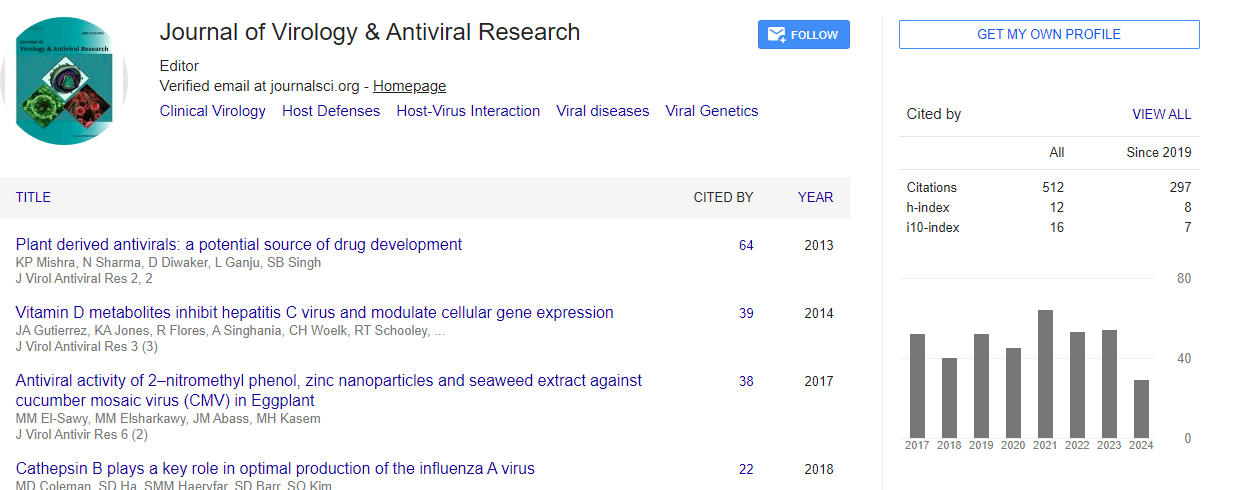Tolerability of Hepatitis C virus medication treatment: A comparison of psychiatric side effects
Rasha Elkady and Elmadani Ola
University of Missouri, USA
Mansoura University Hospital, Egypt
: J Virol Antivir Res
Abstract
Hepatitis C Virus (HCV) affects approximately 185 million people around the world. HCV infections are one of the few infections causing psychiatric disorders. HCV load in the human body per se induces an inflammatory process in the central nervous system. Patients suffering from chronic HCV also endorsed comorbid psychiatric disorders like depression, sleep disorders, anxiety and bipolar disorder. The conventional gold standard treatment of HCV up till 2011 was the combination of PEGylated interferon and Ribavirin. This treatment was reported to interfere with the hypothalamic pituitary adrenal axis. Causing depression in about 45-60% of cases, anxiety, sleep disturbance, anger, irritability in 75% of cases, mania, sexual impairment and suicidal ideations. In 2011, HCV treatment has evolved from interferon-based treatment to Direct Acting Antiviral (DAA). Extensive literature review showed that psychiatric symptoms did not increase during treatment with DAA medication. Psychiatric symptoms even decreased with the DAA treatment. In this study we conducted a Medline and PUBMED search. Key words that were used in search included, interferon alpha, ribavirin, HCV, sofosbuvir. For treatment of chronic HCV, DAA was found to be more tolerable than conventional antiviral medication. DAA do not induce psychiatric disorders and do not exacerbate underlying psychiatric disorders.
Biography
Rasha Elkady is a Co-Chair of the MPPA ECP Committee and works as an Assistant Professor at University of Missouri at Columbia. She is also a Member of five professional psychiatry societies. She has around 9 publications and is currently working on absence seizures causing visual hallucination in children.
E-mail: elkadyr@health.missouri.edu
 Spanish
Spanish  Chinese
Chinese  Russian
Russian  German
German  French
French  Japanese
Japanese  Portuguese
Portuguese  Hindi
Hindi 

